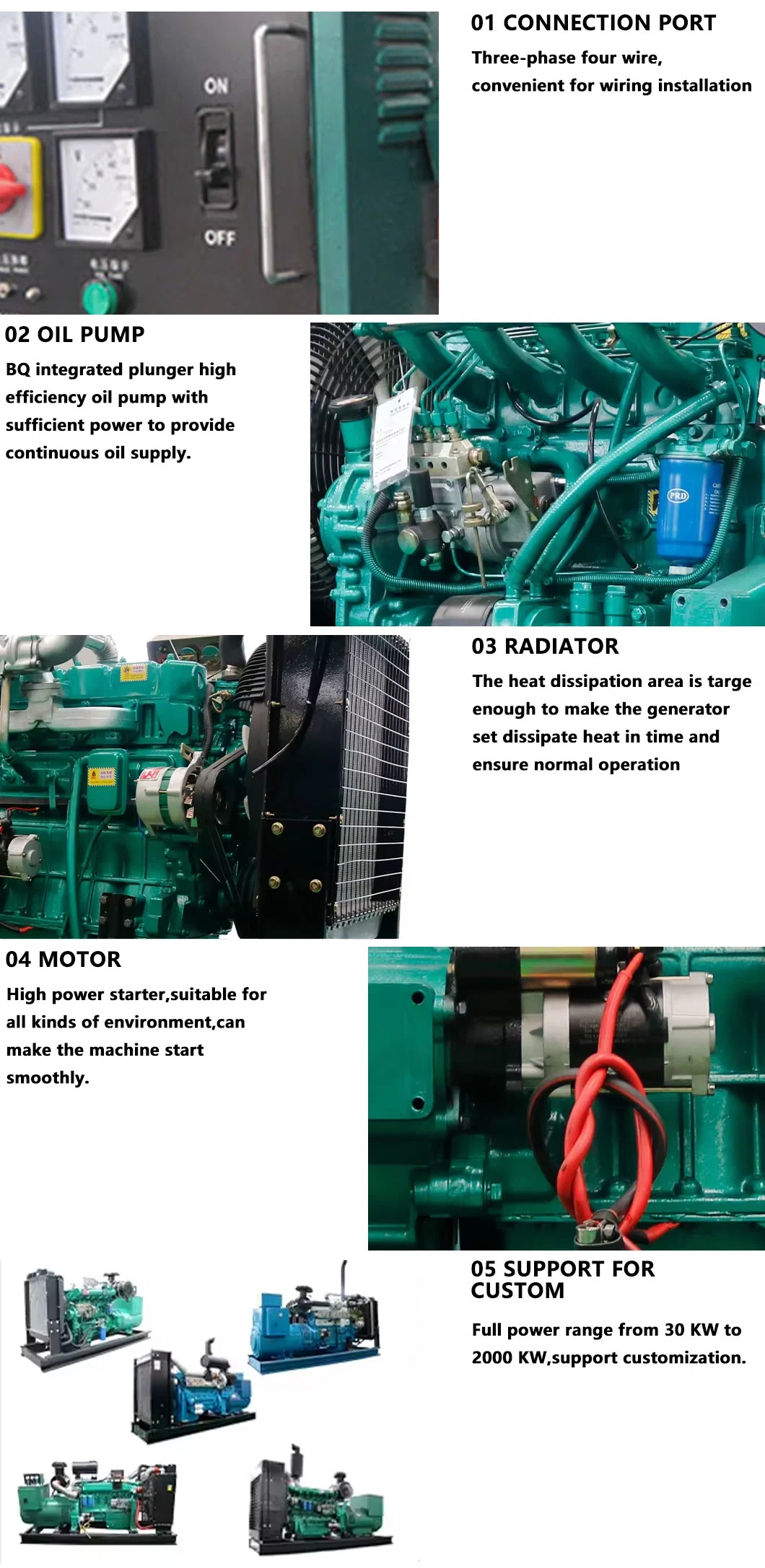Diesel Generator for Base Load Power A Comprehensive Guide

Introduction
Diesel generators are a crucial component of many power generation systems, providing reliable and efficient base load power. In this article, we will explore the various aspects of diesel generators for base load power generation, including their working principle, advantages, challenges, and applications.
Working Principle of Diesel Generators
Diesel generators operate on the principle of converting diesel fuel into mechanical energy through an internal combustion engine. The basic components of a diesel generator include an engine, alternator, fuel system, cooling system, and control panel. When diesel fuel is injected into the engine's combustion chamber, it ignites due to the high compression ratio, resulting in the generation of power that is then converted into electrical energy by the alternator.
Advantages of Diesel Generators for Base Load Power
There are several advantages to using diesel generators for base load power generation, including:
1. Reliability: Diesel generators are known for their reliability and durability, making them ideal for continuous operation as base load power sources.
2. Fuel Efficiency: Diesel engines are more fuel-efficient compared to other types of engines, resulting in lower operating costs over the long term.
3. Quick Start-Up: Diesel generators can start up quickly and reach full capacity within seconds, making them suitable for providing immediate power during outages or emergencies.
4. Low Maintenance: Diesel generators require minimal maintenance and have longer service intervals compared to other types of generators, reducing downtime and operational costs.
5. Long Lifespan: Diesel generators have a long lifespan when properly maintained, providing a cost-effective solution for base load power generation.
Challenges of Using Diesel Generators for Base Load Power
Despite their numerous advantages, diesel generators also have some challenges when used for base load power generation, including:
1. Environmental Impact: Diesel generators emit pollutants such as nitrogen oxides (NOx), particulate matter, and carbon monoxide, contributing to air pollution and climate change.
2. Noise Pollution: Diesel generators can be noisy during operation, which can be a concern in residential areas or noise-sensitive environments.
3. Fuel Storage: Storing diesel fuel can pose safety risks and require proper handling and maintenance to prevent leaks and spills.
4. Operating Costs: While diesel generators are fuel-efficient, the cost of diesel fuel can fluctuate, impacting the overall operating costs of the generator.
Applications of Diesel Generators for Base Load Power
Diesel generators are widely used for base load power generation in various applications, including:
1. Industrial Facilities: Diesel generators provide reliable power for industrial facilities that require continuous operation, such as manufacturing plants, data centers, and refineries.
2. Hospitals: Hospitals rely on diesel generators as a backup power source to ensure uninterrupted power supply for critical medical equipment and patient care during outages.
3. Telecommunications: Telecommunication towers and data centers use diesel generators to maintain network connectivity and data processing capabilities in case of power failures.
4. Remote Areas: Diesel generators are commonly used in remote locations where access to the grid is limited or unreliable, such as mining sites, construction projects, and off-grid communities.
Conclusion
Diesel generators play a vital role in providing base load power for a wide range of applications, thanks to their reliability, fuel efficiency, and quick start-up capabilities. While they have some challenges, such as environmental impact and operating costs, diesel generators remain a popular choice for continuous power generation where grid power is unavailable or unreliable. By understanding 500kw diesel generator working principle, advantages, challenges, and applications of diesel generators, we can better appreciate their importance in ensuring a stable and secure power supply.

